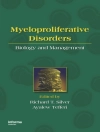This book shows how to establish an integrative medicine by the example of a possible cooperation between Classical Chinese Medicine (CCM) and Western Medicine (WM). In the beginning we need to be aware of fundamental differences in the conceptualization and the respective self-understanding of the medical doing. WM follows the Newtonian concept of science, using Aristotelian logics and descriptive methodology. CCM on the other hand uses highly elaborated metaphorics and constructive self-understanding. Therefore, an integrative cooperation between CCM and WM appears to be reduced to addition. But – this book elaborates how constructivism – especially in the form of Constructive Realism (CR) – can build a bridge between WM and CCM: The concept of micro-worlds offers a way of cooperation between CCM and WM as contradicting systems. Strangification, the central hermeneutical methodology of CR, enriches medical terminology. It unites what often excludes one another: manifoldness and exactness.
Besides this general outcome, the book offers very interesting specific results of research:
• A new way of treatment for cancer
• How acupuncture can be used to treat sleep disorders
• The effectiveness of acupuncture and herbal remedies for the treatment of migraine
• A digression to the treatment of Qi pain in Korean acupuncture and moxibustion
Five contributions to other aspects and dimensions of Constructive Realism complete the book.
Inhaltsverzeichnis
Contents
Friedrich Wallner
Opening address: Constructive Realism mediating East and West
PRELUDIUM: APPROACHES TO CONSTRUCTIVE REALISM
Vincent Shen
Desire, Representing Process and Translatability
Hugo Ochoa
Vincent Shen: Culturalism between Chinese thought and Western science
PHILOSOPHICAL CONDITIONS
Friedrich Wallner and Jan Brousek
The Importance of Philosophy of Science for the Modernization of Chinese Medicine
Keekok Lee
An Understanding of CCM (inclusive of Acupuncture) as Not-Newtonian Science: Its Metaphysical/Ontological Core, Its Implications for Methodology, Causality and Treatment
Sarah S. Knox
The Science of Acupuncture: Biomedicine, Physics and Beyond
Andrea-Mercedes Riegel
Constructive Realism in Chinese Medicine
PRACTICE OF CHINESE MEDICINE FROM THE VIEWPOINT OF CONSTRUCTIVE REALISM
Fengli Lan and Ephraim Ferreira Medeiros
Acupuncture for Sleep Disorders:
General Theories and a Specific Analysis of Insomnia
Andrea-Mercedes Riegel
The Eight Extraordinary Vessels and their Impact on Sleep Quality
Fengli Lan, David Resneck-Sannes,
Ephraim Ferreira Medeiros, Friedrich Wallner
Classical Chinese Understanding of Migraine:
Key to Effectiveness of Acupuncture and Herbal Remedies
Ephraim Ferreira Medeiros, Kwon Jong Yoo, Wung Seok Cha
Emotions, Qi, and Pain: The Treatment of Qi Pain
in the Chapter 30th of the Saamdoinchimguyogyeol
by Acupuncture and Moxibustion
Yanfen She
Body surface resistance of Yuan-source point in 3 yin meridians of foot responding primary dysmenorrheal
CONSTRUCTIVE REALISM IN DISCUSSION
Friedrich Wallner
The different origins of Constructive Realism
Nicole Holzenthal
Life-world or Culture as breeding ground for sciences-
From Herder and Fichte, via Mach, Avenarius and Husserl,
to Wallner and Bueno
Jan Mehlich
Between Inter-culturality and Culture-Specificity-
Constructive Realism applied to Global Ethics
Jan Brousek
Constructive Realism-
an epistemological basis for intercultural conflict transformation
Gerhard Klünger
Arguments to Overcome
Brain-Based Deterministic Concepts of Mind












